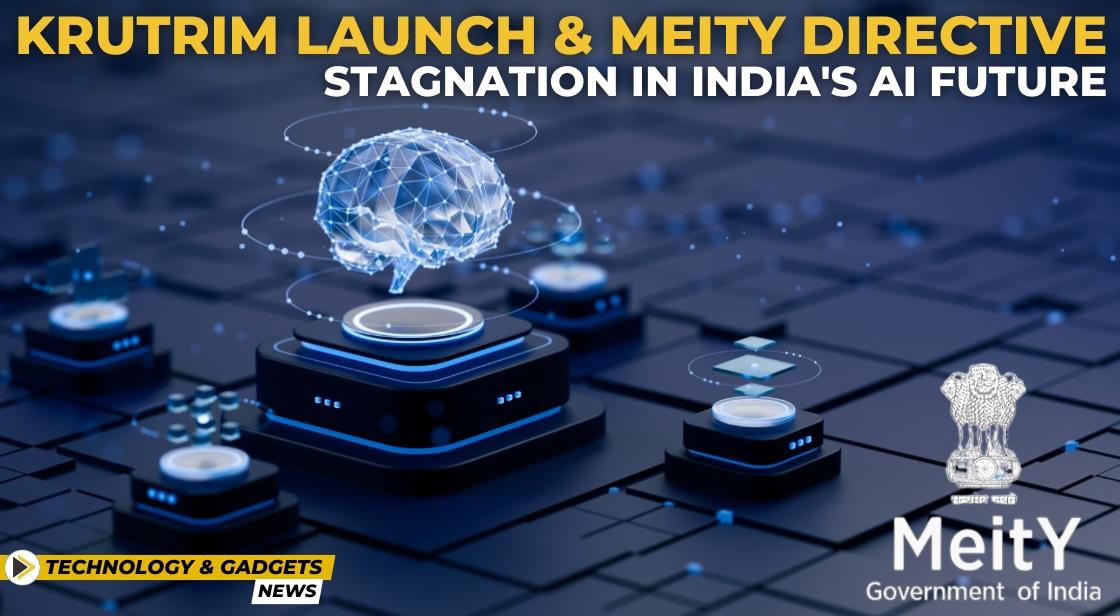Krutrim Launch and Meity Directive: Stagnation in India's AI Future

News Synopsis
During his June visit to India in the previous year, Sam Altman was asked what steps an Indian business would need to take to create something such as ChatGPT. Since it seemed to downplay what Indians could do with AI, his response to that question went viral. Indians can attempt to create AI similar to ChatGPT, but they will not succeed, Altman had warned.
Attempts are still being made to develop Large Language Models (LLMs) specifically for India, over a year later. However, recent events in this field, particularly those that have occurred in the last 10 days, indicate that the efforts to create anything akin to ChatGPT are stalled.
Two items stand out in particular: the new guidelines released on Friday by the Ministry of Electronics and Information Technology (Meity) and the tool Krutrim, which was introduced by Ola.
Let's start by discussing Krutrim. Krutrim, which debuted to the public last month, is billed as India's version of ChatGPT, complete with LLMs and in-house AI. The buzz over the made-in-India AI tool subsided in a matter of days.
After they began engaging with it, they realized how unfinished the AI tool was. It was misinforming people, creating false information, having frequent hallucinations, and in one case, outright stating that OpenAI was the source of the information.
Many conjectured that Krutrim is nothing more than a sophisticated shell over ChatGPT as a result of this. Because Ola felt the charges were serious enough, it responded with a tweet.
The business stated: "We investigated the issue and found the root cause to be a data leakage issue from one of the open-source datasets used in our LLM fine-tuning."
The government lowers the hammer
LLMs are now human. As AI is still in its infancy, we shouldn't be too hard on startups and smaller businesses like Ola if even Google can't get things right.
The Indian government, however, appears to be operating by the adage of a person with a hammer: "Every problem is a nail" in the wake of the Krutrim and Gemini debacle.
This is most likely the same reason why the Indian government released a stringent guideline that would probably have an effect on how Indian businesses develop AI products like ChatGPT in the nation.
Furthermore, in a more constrained setting, it might not even be feasible if the best that Indian firms have managed to do thus far in a free-form setting is something akin to Krutrim.
The CEO of Perplexity AI, Aravind Srinivas, stated, "Wrong move by India," citing a news article about a new recommendation. It wasn't just him.
CEO of Abacus AI Bindu Reddy shared similar opinions, saying: "India just kissed its future goodbye. The Indian government now has to approve any business using a GenAI model. In other words, you can't just use a 7b open source model without permission anymore."
You May Like









